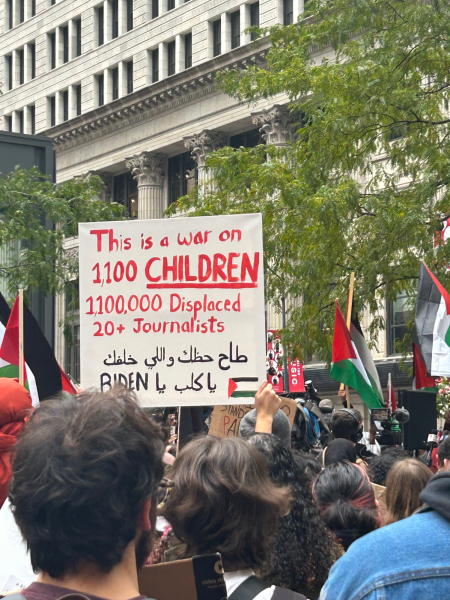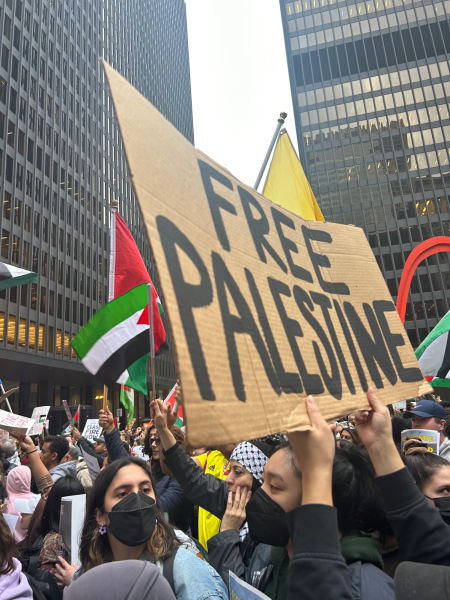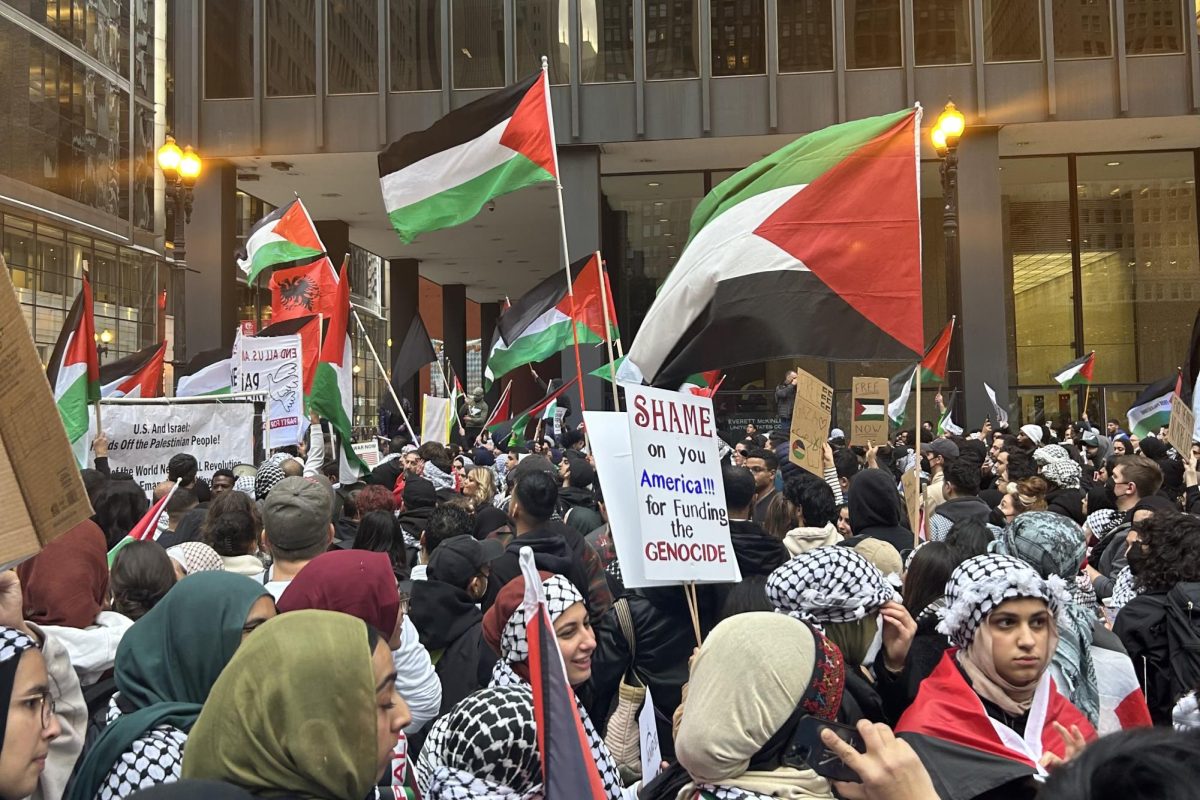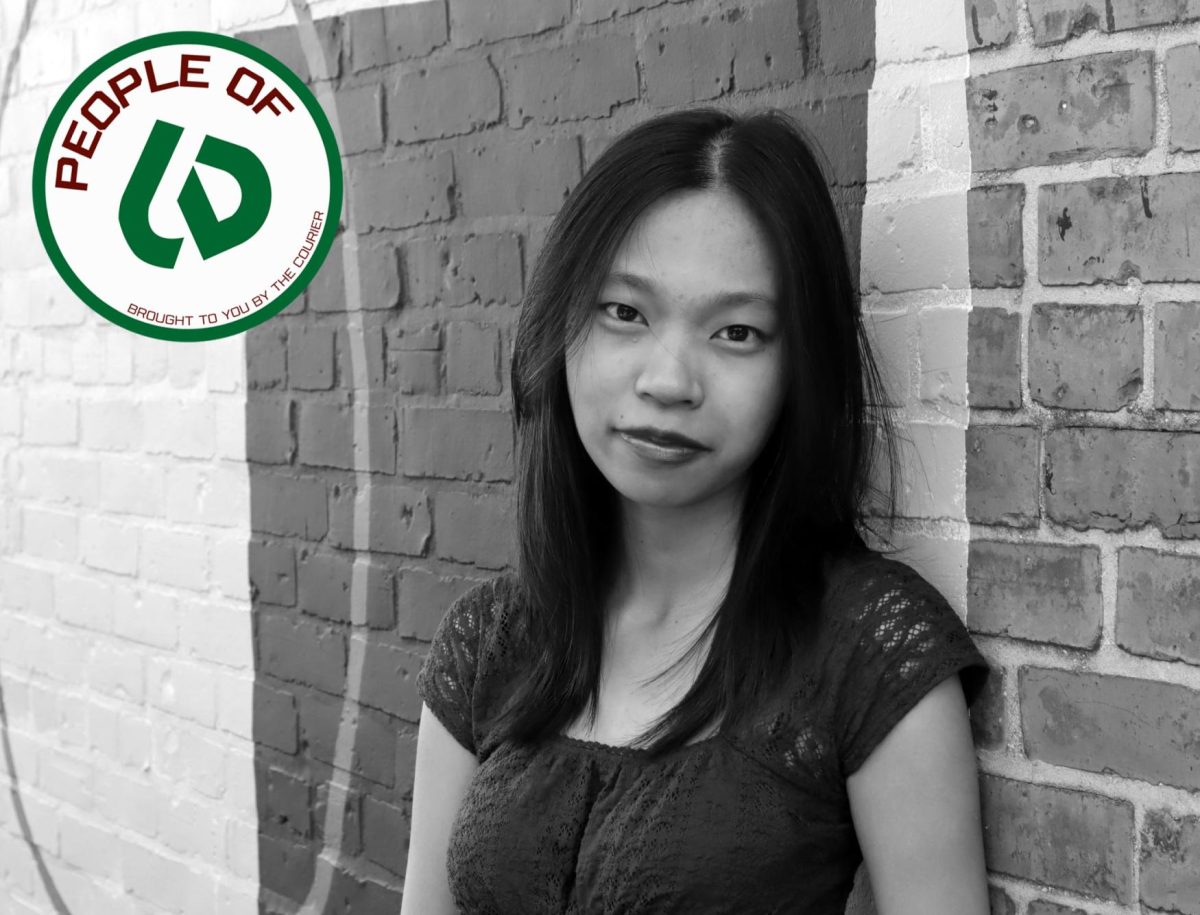Dina Khoury, who is Palestinian and an Arabic language instructor at COD, has family in Bethlehem, a town of more than 28,000 people located south of Jerusalem in the West Bank. Although Bethlehem is stationed nearly 60 miles away from Gaza, members of her family have experienced firsthand how war upends the necessary resources to survive.
On Oct. 7, Palestinian militant group Hamas fired thousands of rockets and began ground assaults on 22 Israeli towns and army bases, taking both civilians and soldiers hostage. As attacks from Hamas and Israel have continued over the past two weeks, thousands have been killed on both sides according to reports from the New York Times and NBC Washington.
Khoury’s 72-year-old mother has felt the impact personally, as checkpoints under Israeli authority have often stopped her doctor from being able to arrive in Bethlehem to provide continuous physical care. All schools within her community have switched to doing online classes, but one of Khoury’s sisters who teaches says that because many don’t have access to the internet, attendance from students remains low.
“Grocery stores open (for) short hours and then they close just enough for people to get some food,” Khoury said. “It’s hard for (my family). They’re not getting the bombs, but they’re affected. Just like Bethlehem is affected, other cities in the West Bank are affected that way as well.”
Khoury earned her bachelor’s in English language and literature at Bethlehem University in 2005, but not after living through the Second Intifada – an uprising in the early 2000s over failed Israeli-Palestinian peace talks that took the lives of thousands.
“I never had the opportunity to be a normal student in college,” Khoury said. “I had exams, but then (we’d) hear the bombing. You can see there’s shooting everywhere, so we go and hide. Colleges (in the United States) do trips – there was no trips because we’re trapped in Bethlehem.
“One time they did (a) 40 day curfew. You can’t leave your home. You can’t leave the house. Nothing,” Khoury said. “There were people getting shot at home – they can’t even take the dead out of their homes, because you’re not allowed to leave. Those are my memories of college.”
The same medical obstacles Khoury’s mother faces are reminiscent of what her father took on before his passing one year ago. His name was Elias Khair, whose career as a writer and anchor spanned over 40 years in journalism.
Khair was receiving treatment for heart complications and lung cancer at a hospital in another town, as the medical care that was available nearby wasn’t able to provide substantial treatment. But to receive a consultation at this other hospital would mean being able to successfully pass through Israel’s checkpoints.
Khoury’s family would be required to notify the Israeli government of their father’s sickness, and detail which specific days Khair would be crossing checkpoints for chemotherapy. Six appointments for treatment were scheduled for Khair, but crossing turns complicated when access would be abruptly restricted or closed off.
Even in moments when Khair was too sick to stand, he needed to make the appointment, as getting more checkpoint entry days approved by the Israeli government was a long shot.
“We have to drag him because there’s no other time for that,” Khoury said. “There’s no cars allowed. There are soldiers with guns. There’s a long line with a lot of people also going for whatever reason. I remember my brother-in-law went with him, he said ‘He was so tired, I had to hold him (by) his shoulder just (to) have him walk it.’ It was torture.”

As Khoury calls to check in with her family every day, she’s reminded that the violence and chaos of her home hasn’t changed. Khoury continues her call for peace and aligns herself with neither side of this conflict.
“I’m not on anyone’s side. I think it’s horrific what’s happening on both sides,” Khoury said. “It’s sad to hear that some people are cheering for Israel, and the other side is cheering for Hamas. That’s not what we want to hear. Blood will never wash blood.”
Rather than choosing a side, Sam Mitrani, who has a doctorate in History and is a history professor at COD, details how one large outside influence is being overlooked. Mitrani teaches several European and U.S. history courses, including 19th Century State Formation in the United States – which is the establishment of organizations within the United States that enforce rules over the population.
“I think that fundamentally this whole conflict is about the United States,” Mitrani said. “It sounds weird to say, but Israel, first of all, is a creation of the United States.”
In November 1947, the United Nations adopted Resolution 181, the Partition Resolution, which divided Great Britain’s occupied lands into Jewish and Arab states. This laid the foundation for the First Arab-Israeli War of 1948, as Arabs fought against the resolution and the establishment of a Jewish state, while the Jewish people hoped to gain control over territory granted to them from the resolution.
The Jewish side would win that war, and Israel became established as a country in 1948 to be a safe haven for Jewish people who survived the Holocaust. From Mitrani’s perspective, the United States used people from the Holocaust to become their cops in the Middle East in order to control oil within the region.
“They use them, obviously, against the Palestinians who lived there. But (they’ve) also used them repeatedly against the surrounding Arab states,” Mitrani said. “So the U.S. domination of the entire Middle East relies on their number one cop, Israel.”
On Oct. 20, President Biden requested Congress to approve $105 billion in military aid, primarily for Ukraine and Israel according to The New York Times. As wars rage in Europe and the Middle East, Mitrani thinks of the realities that victims like Khoury’s family are exposed to.
“It’s a situation that creates an unending source of conflict because literally, the situation in Gaza is an open-air prison,” Mitrani said. “It’s not even just that people don’t have access to food, water and medical care, it’s that people have no future.”
Surrounded by Egypt, Israel and the Mediterranean Sea, more than 2 million Palestinians call the Gaza Strip home, making it one of the most densely populated places on Earth. 65% of Gaza’s population is under the age of 24, and 70% of those aged 19-29 remain unemployed according to reports from CNBC and Aljazeera.
“If you’re born in 2003 in Gaza, you’ve been trapped. You literally cannot leave, and it’s literally half as big as Chicago,” Mitrani said. “What the hell are you going to do? Your life is completely constrained.”
Mitrani is stricken by those who look at this conflict and don’t understand one critical component, the history of world powers occupying land to gain political control over others.
“The world was divided up among the European powers. The rich countries are the countries that conquered the others,” Mitrani said. “That’s like the most basic and obvious truth that everyone in every poor country kind of knows. If you don’t understand that basic fact, then the world makes no sense, and it becomes good guys and bad guys.”
A black-and-white view of “good guys and bad guys” swiftly turns people against each other and simplifies conflicts like these far too much.
“That kid that you know in high school who decided to join the US Army because they couldn’t find a decent job… they wanted to help protect their country and they wind up in Iraq, and then they wind up shooting people,” Mitrani said. “Is that person the evil one who’s driving the system? No. That person is caught up in the same system – which you can say about that random Israeli drafted into their army too, which is like the whole population.”

Asma Yawari is the president of the International Students Club (ISC), a group at COD that aims to provide more interconnectedness among diverse cultures and backgrounds on campus. On Oct. 12, ISC hosted an event that focused on the Israeli-Palestinian conflict, where people on all sides of the issue could share their perspectives to promote open discussion.
“There was actually one girl there who was Palestinian,” Yawari said. “She shared a lot about her personal experience and how her family’s been affected by the Israeli forces.”
“Some students were talking about how they’ve been facing a lot of Islamophobia recently on and off campus because of (the war), and how the media is portraying Muslims now because of the situation,” Yawari said.
After a successful event, Yawari met with faculty members, students and other club advisors on campus to plan an educational panel on this topic. ISC has also thought about collaborating with the counseling and advising department at COD, where students impacted by the subject can find adequate counseling and a safe space to talk.
Counseling and advising did send out a campus-wide email on Oct. 16, reminding students who are anxious or fearful, they are not alone.
“World events can have an impact on many of us, and the volume of violence and disruption across the globe right now can be very troubling,” the email said. “Counseling, Advising and Transfer Services would like to remind you that we are here to support any student experiencing difficulties. If you would like to schedule an appointment for personal counseling, please stop by our office in SSC 3200 or call us at (630) 942-2259.”







